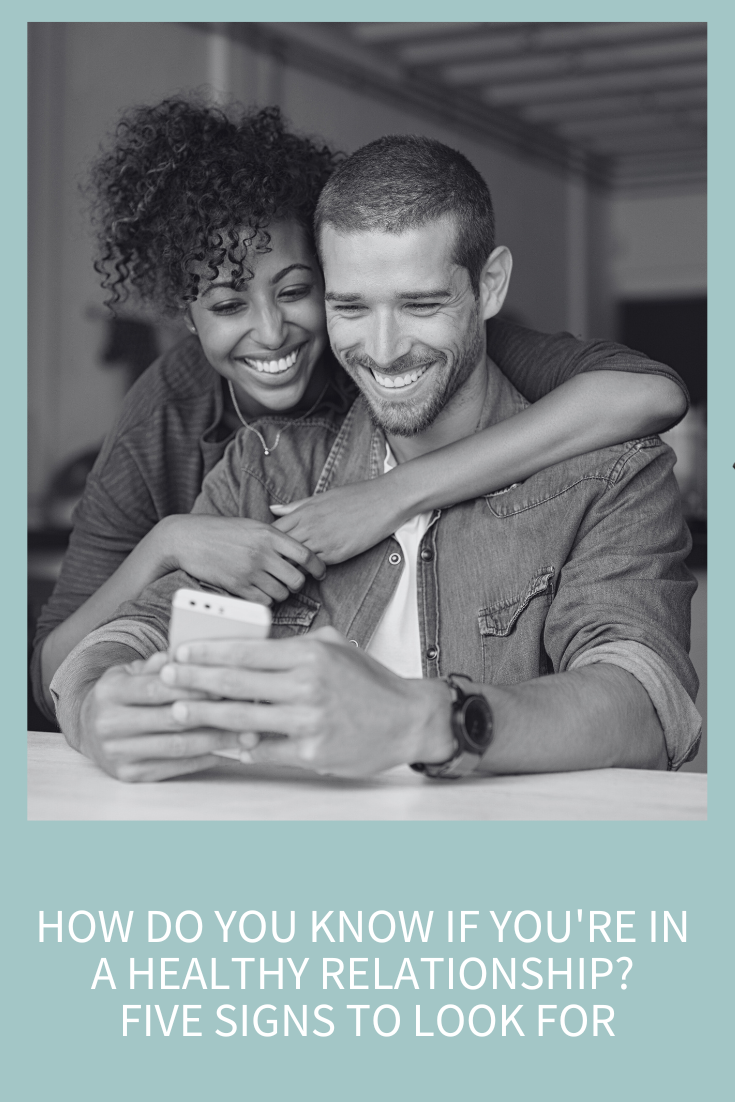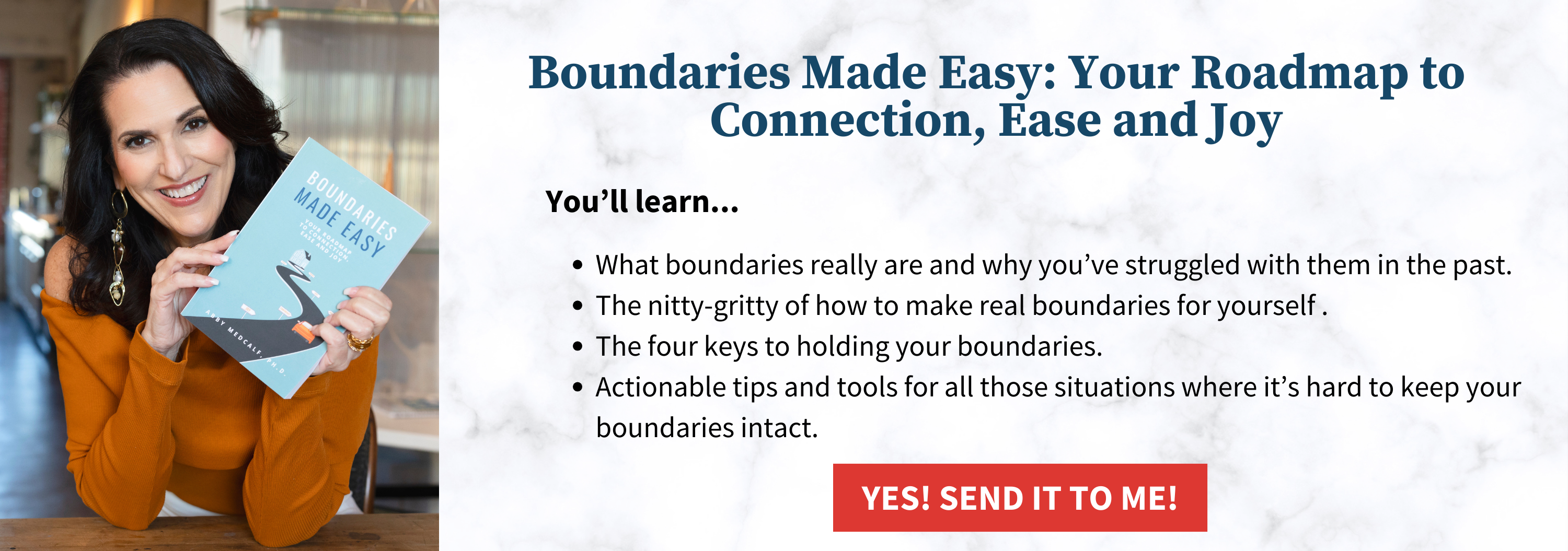
Because so many of us come from dysfunctional families, it can be hard to know if we’re in a healthy relationship or just repeating the screwed up stuff we saw growing up with that seemed normal because it’s all we knew. With a career spanning 40 years, in multiple states and countries, and having worked in every environment you can imagine, I’ve learned a lot about what it means to truly be in a healthy relationship. Today I’m sharing the top five things to look for to know whether or not you’re in a healthy relationship or to at least identify what you need to work on.
9-minute read
Introduction
Early in season five of the podcast (episode 209), I outlined the five signs of healthy relationships, which included acting as a team, being honest with your feelings, focusing on yourself, not the other person, coming from love, not fear in your interactions, and leading with curiosity. If you haven’t checked that out, it’s definitely time. Today, I’m expanding on those with yet another five signs to look for to know if you’re in a healthy relationship.
Is your relationship worth saving? Use this 5-step process to figure it out.
In no particular order, these are the next five signs that you’ve got yourself a healthy relationship.
Sign #1: Empathy and Compassion Come First
I’ve long said that developing empathy in your relationship is the key to connection and communication. We know from the research that it not only strengthens relationships, but it also increases cooperation, helps people forgive, decreases negativity, aggression and being judgmental, and even improves your physical health! Feeling truly understood and seen by our partners (or anyone) is one of our deepest needs as humans.
Psychologist Carl Rogers, the father of the client-centered approach to therapy, talked often about the need for empathy in human relationships. He said, “When someone really hears you without passing judgment on you, without trying to take responsibility for you, without trying to mold you, it feels damn good!” He goes on to say, “When a person realizes he has been deeply heard, his eyes moisten. I think in some real sense he is weeping for joy. It is as though he were saying, “Thank God, somebody heard me. Someone knows what it’s like to be me.”
The thing people get wrong about empathy is that they try to put themselves in the other person’s physical shoes. So if your partner is sharing something that upset them, but it’s not something that would upset you, it’s hard to find the compassion, patience or empathy for what they’re experiencing. That’s because you’re focusing on the wrong thing. Instead, you want to put yourself in their emotional shoes. Don’t focus on the situation and putting yourself in that situation; focus on the feeling and think of a time you’ve had that feeling.
So let’s say your partner is feeling humiliated and upset that they messed up a presentation at work. You find speaking in front of people easy so you might feel like you can’t empathize. But if you think of a time you felt humiliated or upset or felt something similar to what your partner is describing, you can empathize. It’s not about how you would feel in a similar situation. It’s about being in their emotional shoes and feeling what they felt in that situation. You’re taking on this painful emotion so that your partner doesn’t have to go through this situation alone.
I cover the five steps to being an empathy ninja in my previous episode on empathy. Empathy and compassion are similar but have a key difference. Empathy is all about feeling with someone and getting on that same feeling plane with them so your partner doesn’t feel alone in what they’re going through. Compassion is more about how you then act with your partner. Compassion means you act with care and kindness. When we empathize first, it’s much easier to come from compassion with what you choose to do or say next.
Use this loving kindness meditation to develop feelings of compassion, love, kindness and warmth towards yourself and other people.
Sign #2: Trust
I’ve talked previously about something I call the Trust Triad because there are basically three components that create trust in a relationship and those are:
I. Competency
Competency in any relationship is huge. Does the other person do what they say they will successfully and efficiently? This is being competent. Do they follow through? Do they show up on time? Do you believe that they can do the things they promise or commit to? In other words, can they do the job of being your partner, friend, or coworker?
We build the competency leg of the Trust Triad by taking things on and following through. We do it by not letting the little things slip through the cracks. We also build this by not saying yes to everything. When we say yes to everything, we can’t do it all. It’s important to commit to a smaller number of things and do them consistently well. This is when I talk about getting help as much as possible. When there’s too much on our plate, things slide, and we try to be everything to everyone, so competency fades.
II. Goodwill
The second factor, goodwill, is all about you believing that the other person has your best interest at heart and that they care about you as a person, not just the role you fulfill. We tend to build this side of the Trust Triad as we express compassion and empathy for other people’s feelings. It’s when we stop and give our full attention, listen well and ask specific questions. It’s when we approach things as a “we” problem, not a “you” problem.
III. Integrity
The third component of trust, integrity, is all about honesty. Are you saying something so the other person won’t get upset? Are they trying to manipulate you to get their way or avoid a conflict? Are they saying they feel one way, but you think they really feel another? Are they telling you outright lies consistently? We build up this facet of the Trust Triad by speaking our true feelings, being willing to have those harder conversations, and not brushing everything under the rug.
We do this by speaking as truthfully as possible, all the time – especially about the little things. The trust triad is important because I’ll often hear people say they trust their partner because they trust them not to cheat or hide money but, when I dig deeper, we realize that they don’t actually trust their partner in one or more of these areas. Trust is a continuum, not an either/or.
Sign #3: Healthy Boundaries
As you now know, I wrote an entire book about boundaries, Boundaries Made Easy: Your Roadmap to Connection, Ease and Joy. I would say this is definitely your sign to get yourself that book if you haven’t already.
But let me say this now. Being in a healthy relationship means you have healthy boundaries (that come from love as healthy boundaries do) with your partner. It means you don’t take responsibility for your partner’s thoughts, feelings or actions and don’t expect them to take responsibility for your thoughts, feelings and actions. The two big ways you know that you have healthy boundaries with your partner are that you no longer feel resentful or frustrated with them and you never feel insecure or jealous in your relationship.
Sign #4: Affection and Playfulness
The beginnings of most romantic relationships are marked by limerence and what’s called passionate love or the sex and lust phase. You’ve got those super intense emotions; you can’t stop thinking about them and just want to have your hands all over the other person. Over time, this passion transforms into a different kind of attachment, one that’s for the long haul. Biological anthropologist Helen Fisher, Senior Research Fellow at the Kinsey Institute, has been studying our brains in relation to sex, love and relationships for decades. She’s identified three different stages in relationships, each with its own biochemicals and brain patterns. The three brain systems she identifies are:
- Sex and lust
- Your feelings of attachment and trust
- Being in love and romance
I go deep on all the biochemicals in an earlier episode called How to Know if You Really Love Someone and Getting the Sizzle and Loving Feeling Back in Your Relationship. But even though these super intense feelings from that early sex and lust phase have transformed into the attachment and trust phase, all is not lost because now you’re building a progressively deeper intimacy and emotional closeness.
In my mind, if you held affection and playfulness with your partner as a goal, priority or intention every day with your partner, you’d see your relationship grow and deepen in amazing ways. When I talk about affection and playfulness, I’m including sex and physical intimacy in this mix too.
Sign #5: You Feel Good in Relationship to Them
This last sign is deceptively simple but it’s really huge. You need to ask yourself, “When I think of my partner, how do I feel?” I don’t mean in a moment after a fight or in a moment when you’re on vacation in the tropics and just had great sex. I mean, how do you feel on the daily when you think of them or when you’re with them?
If you’re in a healthy relationship, overall, you want to feel energized, not drained. You want to walk in your house and exhale because you’ve made it to your safe place. You want to see their car in the driveway and have a smile on your face and a feeling of excitement or even relief when you’ve had a hard day. You want to feel enthusiastic, not apprehensive. You want to feel included, not excluded. You want to feel like this person has your back, no matter what. You might disagree, but you’re always on the same team.
If you mostly feel anxious, worried, frustrated, resentful, angry, abandoned, jealous, rejected, depressed or sad, we’ve got trouble. If one or more of these are your predominant feelings, it’s time to take a good long look at yourself and this relationship.
Research and Resources for How Do You Know if You’re in a Healthy Relationship?
The Five Signs of Healthy Relationships
Is Your Relationship Worth Saving?
Empathy in Relationships is the Key to Connection and Communication
Loving Kindness Guided Meditation: Finding the Love
Building Trust in Your Relationship
How to Be Honest and Build Trust in a Relationship
Boundaries Made Easy: Your Roadmap to Connection, Ease and Joy by Dr. Abby Medcalf
Be Happily Married: Even If Your Partner Won’t Do a Thing by Dr. Abby Medcalf
Calibration Exercise: Create a Positive Vibration to Start Your Day
The Secret to Managing Your Emotions: A Step-by-Step Guide
Instead of Date Nights, Work on Micro Connections
How Do You Know if You Really Love Someone
Getting the Sizzle and that Loving Feeling Back in Your Relationship







